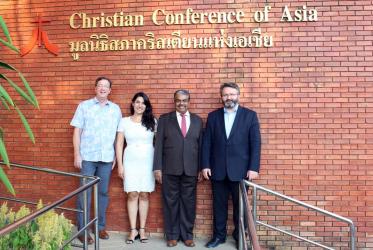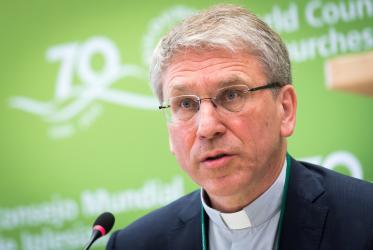Displaying 21 - 40 of 55
WCC condemns massacre of farmers in Philippines
12 April 2019
Peace is common denominator of all major religions
05 March 2019
WCC pilgrimage turns its eyes to Asia
04 March 2019
Conciliar Unity: Whither Vision and Direction?
14 December 2018
All pilgrim routes lead to COP24
11 December 2018
“Overcoming economic injustice” vision of WCC’s Athena Peralta
23 February 2017
Consultation considers right to food in context of climate change
15 December 2015
Interfaith workshop calls for justice and compassion in finance
03 December 2015
Landrechte bilden Schwerpunkt bei Podiumsdiskussion
17 November 2015










